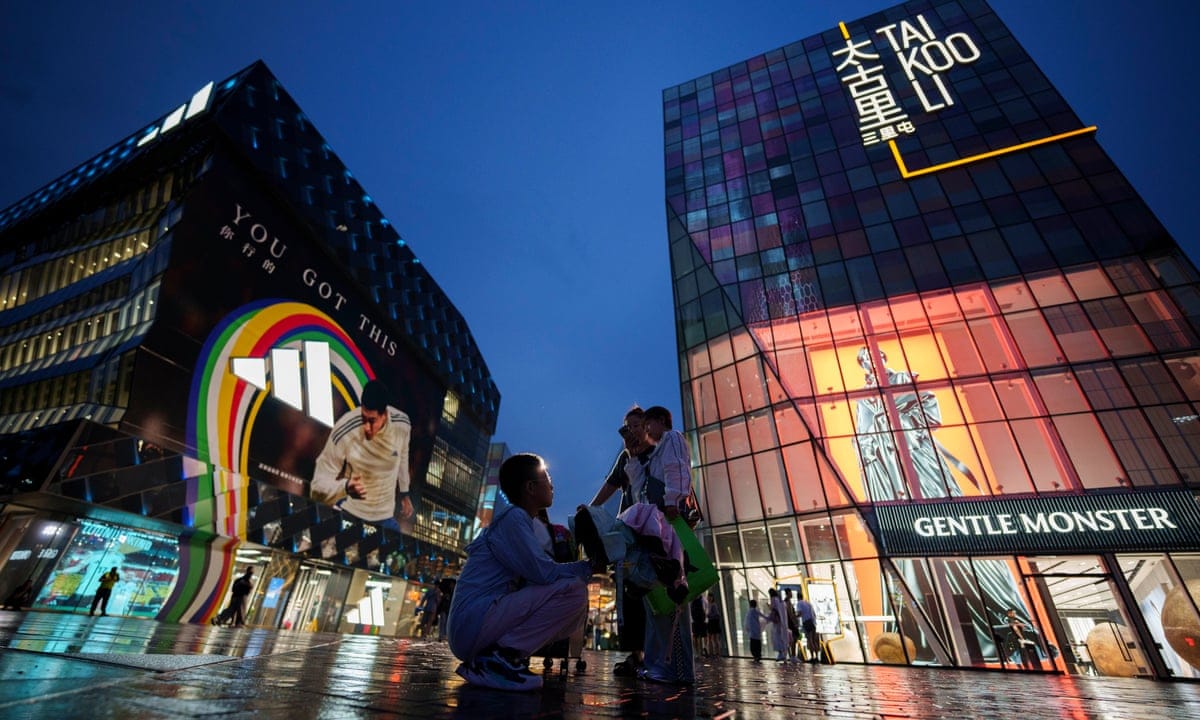Pressure has mounted on Beijing for action aimed at bolstering Chinese consumer confidence amid reports of a decline in retail spending contributing to slower economic growth.
Continued decreases in property values are noted as one factor hindering overall activity, with official data indicating the economy grew by 4.7% annually over the second quarter – falling short of analysts' forecasts of a 5.1% expansion.
Omitting retail sales growth from previous rates and hitting its lowest point in 18 months, the figures for June alone also showed a decline.
Lynn Song, ING bank’s China economist, pointed out that weak consumer confidence persists as a significant obstacle to economic rebound efforts. She attributed the slowdown to factors including reduced property and stock value impacting wealth perception and wage stagnation amid industry cost reductions.
The Chinese government's 2024 growth goal of 5% is met with skepticism by analysts without anticipated fiscal interventions or measures targeting the real estate sector. Nonetheless, the National Bureau of Statistics reported a quarterly economic expansion of 0.7%, slightly up from a previously revised first-quarter growth rate.
China has responded to reduced domestic demand and ongoing property challenges by increasing infrastructure spending and investing in high-tech manufacturing industries. Despite this, export performance remains robust with June data showing an 8.6% increase from the previous year, although imports experienced a 2.3% reduction.
Duncan Wrigley of Pantheon Macro observed early indications that the property market might be reaching its lowest point after only slight decreases in new and pre-owned home prices were noted for June compared to May. Residential sales value also saw a decrease, partially offset by previous declines.
Read next

Ryanair plane had only six minutes of fuel upon Manchester landing, records show
Flight Narrowly Avoids Disaster After Storm Diversion
An inquiry has been launched after a Ryanair flight, struggling against severe winds during storm Amy last week, landed at Manchester Airport with only six minutes’ worth of fuel remaining.
The aircraft had been transporting passengers from Pisa, Italy, to Prestwick, Scotland, on

"Qantas customer data for 5 million exposed as hackers release info post-ransom deadline"
Hackers Leak Personal Data of 5 Million Qantas Customers on Dark Web
A cybercriminal group has released personal records of 5 million Qantas customers on the dark web after the airline did not meet their ransom demand.
The breach is part of a larger global incident affecting over 40 companies,

Investors flee record-high UK stocks as EU set to hike steel tariffs
Investors Withdraw Record Sums from Equity Funds Amid High Market Valuations
Data reveals that investors in the UK have withdrawn an unprecedented amount of money from equity funds over the past three months, driven by concerns over soaring stock market valuations.
According to the latest figures from Calastone, the largest

